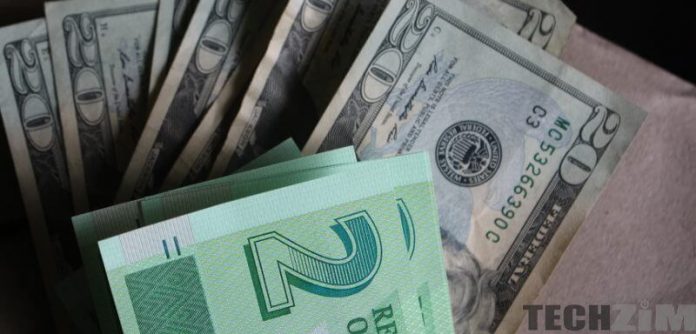Staff Writer
HARARE – In a judgment, which could have potentially far-reaching implications over the conversion of USD bank balances to RTGS, the High Court today nullified the exchange control directive issued by the Reserve Bank of Zimbabwe in October 2018 which separated bank accounts into Nostro FCA and RTGS FCA.
The separation of accounts signaled the start of the conversion of USD balances into RTGS, which later culminated in Statutory Instrument 33 of 2019, which formalised the return of local currency.
However in a ruling in the matter brought by Penelope Douglas Stone and Richard Harold Stuart Beattie trading as The Stone/Beattie Studio against the Central Africa Building Society (CABS), the RBZ and the Ministry of Finance and Economic Development, High Court judge, Justice Happias Zhou nullified the separation of accounts by declaring that Exchange Control Directive R120/2018 was invalid.
Represented by Tendai Biti, The Stone/Beattie Studio had taken its bank, CABS, to court demanding that the US$142 000 that was in the bank in 2016 should be paid in the currency that it was deposited in and not as RTGS currency. While arguing the matter, Biti had stated; “You can not give me goats when I gave you cows.” RBZ and the Finance Ministry had been included in the lawsuit for giving a directive that was unlawful, irrational and unconstitutional.
CABS, which refused to pay Stone and Beattie in United States dollars after an initial letter of demand, argued in court that it was only following an RBZ directive and risked penalties if it had defied the central bank.
However, Justice Zhou ordered CABS to pay The Stone/Beattie Studio the money held in their account in 2016 or transfer it into a nostro account nominated by the company within seven days from the date of the order with an interest if 5% per annum from the October 2018 date.
“It is offensive to any sense of justice that a person who holds money in a bank can wake up on any day to be told that his money means something else different from what it has always been. This drastic deprivation of existing rights is not what is contemplated by section 317 of the Constitution of Zimbabwe as constituting regulation of the monetary system, protecting the currency of Zimbabwe and implementing monetary policy,” Justice Zhou said.
“If the decision of the first respondent was to be allowed to stand the effect of it is that the applicants money is now Z$142000 which is probably less than 4% of its value at the prevailing official rates, which this court cannot ignore. A decision which reduces US$142 000 to fraction of its value cannot be defended in a democratic society founded upon the values enshrined in the Constitution of Zimbabwe. It in substance manifestly violates the right to property,” Justice Zhou said.
The courts still have to deal with several more cases, which relate to currency conversion with the latest being the suit filed by the Law Society of Zimbabwe seeking an order declaring as unconstitutional the Presidential (Temporary Measures) Act, which President Emmerson Mnangagwa evoked to introduce the RTGS as a stand alone national currency. In January this year, the Supreme Court ruled that all debts incurred before February 22 last year must be settled in the local currency at a 1:1 rate against the US dollar in line with SI 33 of 2019. It seems that the cases will have to end up at the Constitutional Court.













